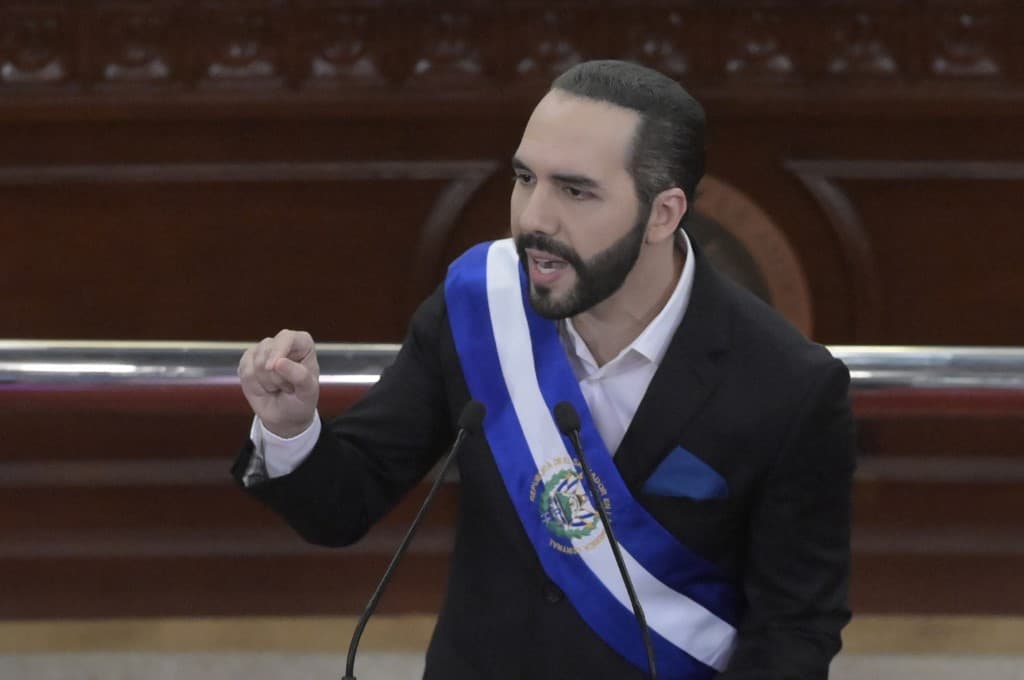Salvadoran President Nayib Bukele on Thursday claimed the Central American country known for its sky high levels of violence has accumulated 365 days without murders since he took office in 2019.
Just over a year ago, Bukele declared a “war” on organized criminal gangs and declared a state of emergency that allowed police to round up more than 68,000 suspected gang members without a warrant.
“We ended May 10, 2023 with zero murders at a national level. With that, it has been 365 (days) without a murder, an entire year,” Bukele said on Twitter.
A source from the presidency’s communications team explained said that this was “the total number of days without murders since 2019” rather than consecutive days.
There are no independent sources to back up Bukele’s figures. His claim comes just weeks before he completes the fourth of his five-year term, in a country that once had one of the highest murder rates in the world.
“El Salvador has gone from being the most violent country in the world to the most secure in Latin America” due to Bukele’s policies, said the press secretary of the presidency.
Bukele assumed office on June 1, 2019 and El Salvador ended that year with 38 murders per 100,000 inhabitants. That figure was down to less than eight in 2022. However, not everyone is convinced by the government’s claims.
Miguel Montenegro, the coordinator for the nongovernmental Human Rights Commission, said that if Bukele’s claims “really were a totally credible piece of news, it would be praiseworthy.”
But he said that “doubt remains” due to a lack of “complete information” about the figures.
Bukele’s war on gangs has come under fire from rights groups including Human Rights Watch and the UN Human Rights Office, which say suspension of constitutional rights has opened the door to widespread abuses.
He launched his move in March 2022, after a spate of gang-related murders left 87 people dead in a matter of three days.
In February, Bukele unveiled what he called the largest prison in the Americas, intended to hold 40,000 suspected gang members — more than doubling the country’s previous total capacity of 30,000 inmates across 20 prisons.
The first few thousand suspected gang members have been transferred there but the prison has been criticized for its harsh conditions and the probability of overcrowding.






